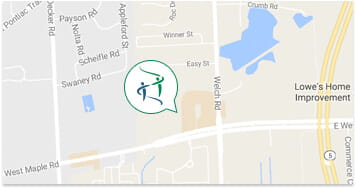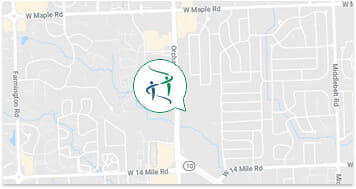
Assessment and Testing
Viewpoint Psychology & Wellness specializes in testing and assessments designed to identify cognitive, emotional, and behavioral issues.
We specialize in administering testing and assessments to children, adolescents, and adults. Patients are often referred to us for an assessment by parents, schools, employers, physicians, or therapists. An assessment examines the relationships between an individual's behaviors, academic or work abilities, cognitive functioning, and emotional functioning.

How Can Testing Help?
Assessments & testing can be greatly beneficial to treatment because standardized questionnaires, computer-based instruments, and interactive tests can help identify an individual's diagnosis. The results of the assessment are then used to indicate the best treatment options available for the individual, as well as determine if interventions or accommodations are necessary in academic or work environments. Testing is effective at improving the way in which a provider such as a teacher, therapist, or physician proceeds with an individual. Our providers are trained in recognizing when testing will be useful, as well as the type and level of testing required.
Child Evaluation for ADHD and/or Specific Learning Disorder*
(Children in Kindergarten -- 12th grade)
1 hour background interview with client/parents
3-5 hours administration of neuropsychological tests
3-5 hours of scoring
1 hour feedback session to review report
$175
TOTAL
$1400-2100**
*Includes testing for ADHD Predominantly Inattentive Presentation (formerly ADD), Predominantly Hyperactive/Impulsive Presentation, and Combined Presentation; Specific Learning Disorder with Impairment in Reading, Mathematics, or Writing (formerly known as Dyslexia, Dyscalculia, or Dysgraphia).
**Any additional hours of neuropsychological testing, scoring, or consultation will be billed at $120/hour, client will be informed as possible that additional hours will be required.
Child Evaluation of intellectual functioning or language*
(Children Ages 3 -- 18)
1 hour background interview with client/parents
3-4 hours administration of neuropsychological tests
3-4 hours of scoring
1 hour feedback session to review report
TOTAL
$1400-1750**
*Includes testing for Intellectual disability, giftedness, or Language Disorder (formerly referred to as expressive or receptive language disorder)
**Any additional hours of neuropsychological testing or consultation will be billed at $120/hour, client will be informed as possible that additional hours will be required.
***If Patient Has Insurance, the Insurance will be billed. Pricing is reflective of denied claims or private pay
Adult Evaluation for ADHD
(Ages 18+, post high school)
1 hour background interview with client/parents
3-4 hours administration of neuropsychological tests
3-4 hours of scoring
1 hour feedback session to review report
TOTAL
$1400-1750**
*Any additional hours of neuropsychological testing or consultation will be billed at $120/hour, client will be informed as possible that additional hours will be required.
**If Patient Has Insurance, the Insurance will be billed. Pricing is reflective of denied claims or private pay
Autism Spectrum Disorder Testing
Testing for Autism Spectrum Disorders (ASD) is available at Viewpoint Psychology for children and adults. You might consider an evaluation for an Autism Spectrum Disorder if you or your child is experiencing language or communication deficits, difficulties with socializing or relationships, repetitive behaviors, difficulties with change, narrowed interests, and/or sensory concerns. We are able to offer testing for Autism Spectrum Disorder to individuals over 12 months old. We are currently able to offer comprehensive testing for Autism Spectrum Disorder that includes assessment of intellectual functioning to individuals ages 2 and older who are able to speak in sentences.
Approximate Hours Required
ASD Testing only for those 2.5 years old
ASD Testing for those 2.5 years old
ADHD Testing 5 years old
ADHD + ASD Testing




